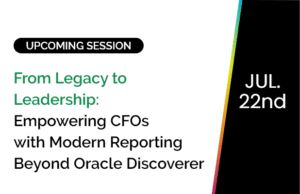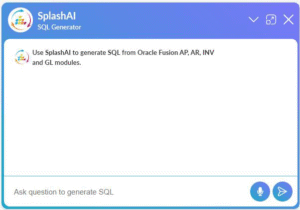Data driven decision making drives modern business. It equips decision makers with insights to understand, verify, and quantify their actions and decisions. Companies using data driven decision making have access to real time insights which optimize performance, test new strategies, and outperform competitors. In fact, data driven organizations are 23x more likely to acquire new customers. They are also typically about 20x more profitable.
Ready to understand the nitty gritty of data driven decision making? Let’s get started.
What is Data-Driven Decision Making?
Data-driven decision making is the practice of using data and analytics to guide strategic as well as everyday decisions. Organizations typically leverage advanced business intelligence and data reporting tools like SplashBI to streamline data driven decision making.
Why Data-Driven Decision Making Is Important
In modern business, making decisions based on gut feelings is a no go. You’ll probably get somewhere, but chances are, it won’t be where you intended. This is where data-driven decision making makes all the difference.
Here’s why data driven decision making is so important:
- Data driven decision making helps you adapt to market changes in real-time: Markets move fast. Your decisions need to keep pace. Data-driven decision making allows organizations and enterpriises to respond to shifts, trends, and disruptions as they happen. Whether it’s pivoting to a new marketing strategy mid-campaign or adjusting pricing in response to competitor moves, real-time insights keep you ahead of the curve.
- Data driven decision making helps take actions that actually work: Forget guesswork. Using data means every choice is backed by evidence. Want to launch a new product? Expand into a new market? Your data becomes the crystal ball, guiding you to decisions with measurable results and lower risk.
- Data driven decision making enables hyper-personalized customer experiences: Modern customers expect brands to know them. And they want brands to wow them. In fact, 71% of customers feel frustrated with impersonal experiences and 63% go further. They stop buying from brands with poor personalization tactics. With data-driven insights, you can create strategies that resonate with customers on an individual level.
- Data driven decision making helps boost confidence across leadership: When leaders have the numbers, trends, and predictions in to back decisions being made in their organizations, these decisions shift from being hopeful bets to confident calls. It’s no longer “we think this will work”. It’s “we know this will work, and here’s why.”
Data driven decision making enables organizations to take the wheel with purpose, steer toward growth, efficiency, and customer satisfaction.
What are Data-Driven Business Strategies?
Data Analytics and Big Data are at the pinnacle of any corporate agenda. They have transformed the way performance is delivered, and the way organizations do business. When we combine data-driven business strategy with data analytics, together, they become an essential competitive difference.
The key to form a data-driven business strategy is the combination of four supporting capabilities:
A data-driven business strategy should be driven by business and not by technology. Understand what your business needs before defining the tactical elements.
The organization must be able to identify, combine, and manage multiple sources of data. It is imperative to determine and ensure that the data is secure, timely, and accurate. Inaccurate data leads to wrong insights and ultimately, bad business decisions. Consider data from all the sources, when combined with your data.
They need advanced data management and data reporting tools to predict and optimize outcomes. Until an organization is ready to leverage all the features of a sophisticated IT system, it should avoid using them. Attention should be paid to data reporting tools, communication tools, and visualization tools.
A data-driven organization must possess the power to induce a data-driven culture. The culture should focus on educating the organization to acknowledge the insights generated by data. Such a culture then becomes a mindset of continuous improvement, testing, prioritizing, and sharing data with other employees. Data and analytics can then be used to inform and influence others in the market.
7 Benefits of Data-Driven Decision Making
1. Increase sales and loyalty
With each trace that a customer leaves behind, he also leaves a treasure of information which gives insights into their preferences, beliefs, etc. Using SplashBI, this data can then be used to tailor products and services in the way the customer wants. With excellent customer experience come high sales and greater customer loyalty. Utilizing a comprehensive sales analytics software, companies can effectively harness this data to drive targeted strategies, ultimately boosting sales and fostering customer loyalty.
2. Cut costs
With such a wealth of information at their fingertips, businesses can easily predict the future and reduce the potential financial impact. Using a data reporting tool like SplashBI can help companies to identify patterns in product and servicing pricing, which helps them take appropriate steps and reduce costs.
3. Increase productivity and efficiency
Business Analytics Software like SplashBI help in identifying revenue-generating opportunities, boosting operational efficiencies, and increasing and optimizing production. Businesses can use this tool to forecast the needs of the inventory and increase the efficiency of production.
4. Compete with big businesses
Today, most companies have access to an enormous amount of data, but only a few use it effectively. Businesses which use SplashBI for their reporting needs gain a significant competitive advantage as they build better services and products using insights offered by SplashBI.
5. Process more data
With the rise of AI and IoT, businesses have started collecting more data, which has made data processing increasingly challenging. However, companies using SplashBI can process data faster as it leverages AI and machine learning. Processing more data means gaining deeper insights. By unleashing the power of data with advanced BI reporting tools, businesses can efficiently handle vast amounts of information, turning it into actionable intelligence.
6. Understand what customers want
Most businesses have a fair understanding of who their typical, and ideal customers are; however, SplashBI gives them a whole new level of customer insights. It offers businesses with an in-depth understanding of their potential customers and the kind of products they like. Knowing customers, and the variety of products they want, helps enterprises in tailoring future offerings.
7. Reduce risk significantly
Data Analytics tools like SplashBI helps businesses in reducing potential risks. They help to give companies vital insights into the success of new products while keeping in mind their customer base. SplashBI allows businesses to predict early and reduce the risk of asset failure and downtime.
Challenges in Data-Driven Decision Making
While data-driven decision making offers numerous advantages, it also comes with challenges:
Data driven decision making: Challenge #1: Data silos:
Fragmented data across departments can hinder comprehensive analysis.
Data driven decision making: Challenge #2: Lack of data literacy:
Teams may struggle to interpret and leverage data effectively.
Data driven decision making: Challenge #3: Integration complexities:
Combining data from various sources requires robust integration tools.
Data driven decision making: Challenge #4: Inaccurate data:
Poor-quality data can lead to flawed decisions.
Tools like SplashBI address these challenges by providing seamless data integration, real-time insights, and user-friendly interfaces. Many business users use SplashBI for analysis and reporting, without having to rely on IT teams. That’s the power of data in the hand of every user to make data driven decisions.
Make Data-Driven Decisions Easy with Reporting Software from SplashBI
With businesses now living in such data-rich environments, data-driven decision making becomes your competitive edge. Imagine a boardroom where every decision is backed by solid numbers, trends, and real-time insights. That’s the power a tool like SplashBI brings to your business.
From optimizing financial reporting to revolutionizing workforce analytics, reporting and analysis tools from the SplashBI suite transform raw data into actionable insights.
No more second-guessing strategies or missing opportunities. SplashBI equips you to navigate uncertainties with confidence, reduce risks, and unlock growth across your organization. Whether it’s cutting costs, boosting productivity, or understanding your customers better, SplashBI reporting and analytics tools across HR to finance, sales to CRM, deliver the insights your organization needs to make data driven decisions.








